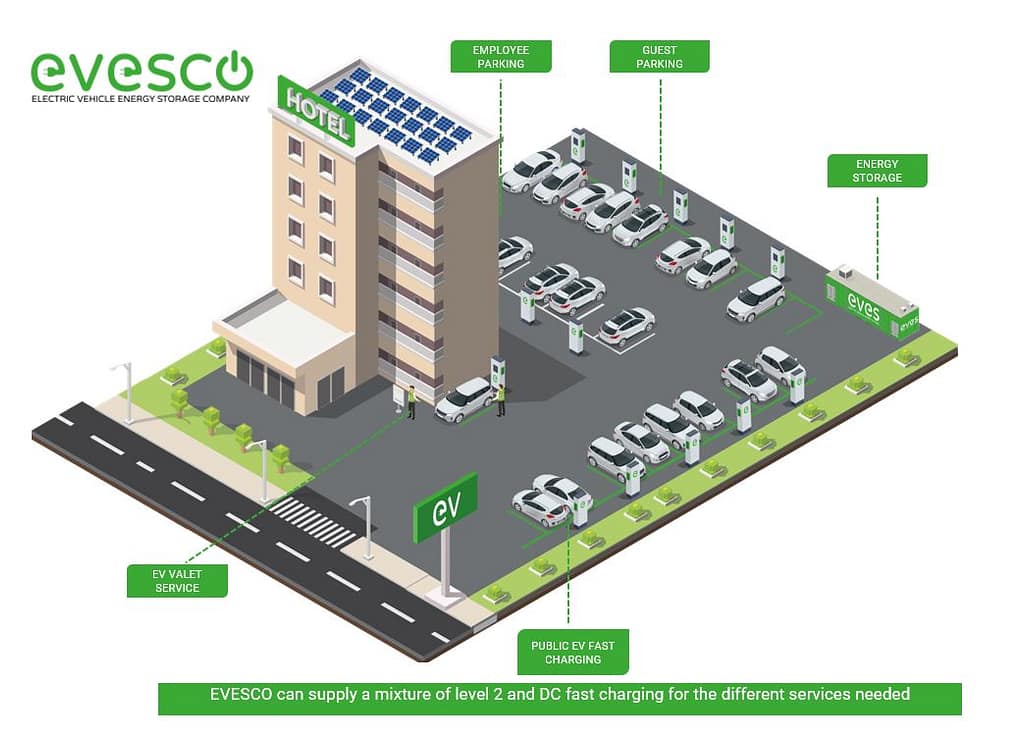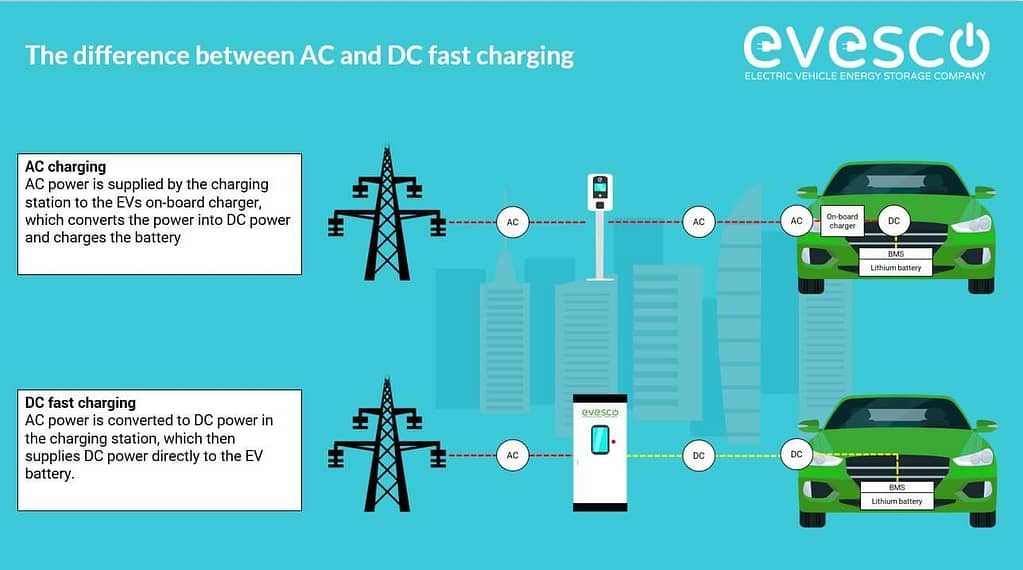As the world moves towards a more sustainable future, electric vehicles (EVs) are becoming increasingly popular. The growth of EV numbers presents a new opportunity for hotels to attract and retain guests by investing in EV charging stations on their premises. This article will discuss the benefits of providing EV charging at hotels and how it can help improve guest experience, attract new customers, and benefit the environment.
IMPROVED GUEST EXPERIENCE
Offering EV charging at hotels can improve guest experience, especially for those traveling long distances. It provides guests with the convenience of having a charging station on-site, eliminating the need to search for a public charging station or worry about running out of battery while on the road. A charging station on site can also give guests peace of mind, as they can be sure their car will be charged and ready to go when they check out.
ATTRACTING NEW CUSTOMERS
With the increasing popularity of EVs, many travelers are now looking for hotels that offer EV charging facilities. By offering EV charging, hotels can attract new customers explicitly looking for hotels that provide this service. EV charging can help hotels stand out from the competition and give them a unique selling point that can attract environmentally conscious guests.
ENVIRONMENTAL BENEFITS
Offering EV charging at hotels can also benefit the environment. Hotels can help reduce carbon emissions by encouraging electric cars and contribute to a more sustainable future. This can also help hotels to demonstrate their commitment to sustainability, which is becoming increasingly important to many guests.
BOOST IN REVENUE
Offering EV charging at hotels can also provide a boost in revenue. Many hotels charge a fee for using their EV charging stations, which can generate additional income. Additionally, guests who stay at hotels specifically for their charging facilities are likely to spend more money on other amenities and services, which can further boost revenue.
COMPETITIVE ADVANTAGE
As more hotels begin to offer EV charging, those not offering it may need to catch up with the competition. Hotels can stay ahead of the curve by providing this service and positioning themselves as sustainable hospitality leaders. Being sustainability-focused can also help them attract environmentally conscious guests, which helps to build a loyal customer base over time.

Further benefits can be realized by adding all in one energy storage to an EV charging installation at a hotel. These include:
COST SAVINGS
Energy storage can help hotels save money by reducing demand charges and time-of-use (TOU) rates. Hotels can avoid high utility bills by storing energy during off-peak hours when electricity is cheaper and then using it during peak hours when it is more expensive.
INCREASED RELIABILITY
Energy storage can improve the reliability of EV charging by providing a consistent power source. If the hotel experiences a power outage, the energy storage system can continue to provide power to the EV chargers and the hotel itself if required.
FURTHER REDUCED CARBON FOOTPRINT
Energy storage can help hotels further reduce their carbon footprint by allowing them to use more renewable energy. By storing excess solar or wind energy and then using it to power EV chargers, hotels can reduce their reliance on grid electricity and lower their carbon emissions.
In conclusion, offering EV charging at hotels can provide a range of benefits, including improved guest experience, the attraction of new customers, environmental benefits, a boost in revenue, and a competitive advantage. As the popularity of EVs continues to grow, hotels that offer this service are likely to be more attractive to guests and have a competitive edge over those that do not. If you are a hotel owner, offering EV charging can be a wise investment that can help to improve your business in many ways. Adding energy storage will provide further benefits to your EV charging installation, with cost savings on energy, increased reliability, and a reduced carbon footprint.
WHAT TYPE OF EV CHARGING IS BEST FOR HOTELS?
When choosing between Level 2 charging and DC fast charging for hotels, there are a few factors to consider. Here are some of the key differences between the two:
Charging Time
DC fast charging is significantly quicker than Level 2 charging (often referred to as AC charging). A Level 2 charging station can take several hours to fully charge an electric vehicle, while a DC fast charging station can do it in as little as 20-30 minutes. This means that DC fast charging stations are better suited for hotels that cater to travelers who need to charge their EVs and get back on the road quickly, for instance, hotels with restaurants, spas, or gym facilities that attract short-term or day guests.

Cost
DC fast charging stations are more expensive to install than Level 2 charging stations. Additionally, the cost per kWh for DC fast charging is typically higher than Level 2 charging. If a hotel installs DC fast charging stations, they may need to charge higher fees to offset the higher costs.
Power Demand
DC fast charging stations require much more power to operate. Hotels may need to upgrade their electrical systems or add energy storage to accommodate the increased demand. Level 2 charging stations, on the other hand, have a lower power demand and may be easier to install without significant upgrades to the hotel’s electrical infrastructure.
Given these factors, it depends on the hotel’s specific needs and its customers. If the hotel caters to long-term guests who will be parked for several hours or overnight, Level 2 charging may be sufficient. However, DC fast charging may be a better option if the hotel caters to guests who use their facilities and do not stay in their rooms. Ultimately, hotels need to evaluate their needs and work with a qualified EV charging station provider, like EVESCO, to determine the best solution for their location.







